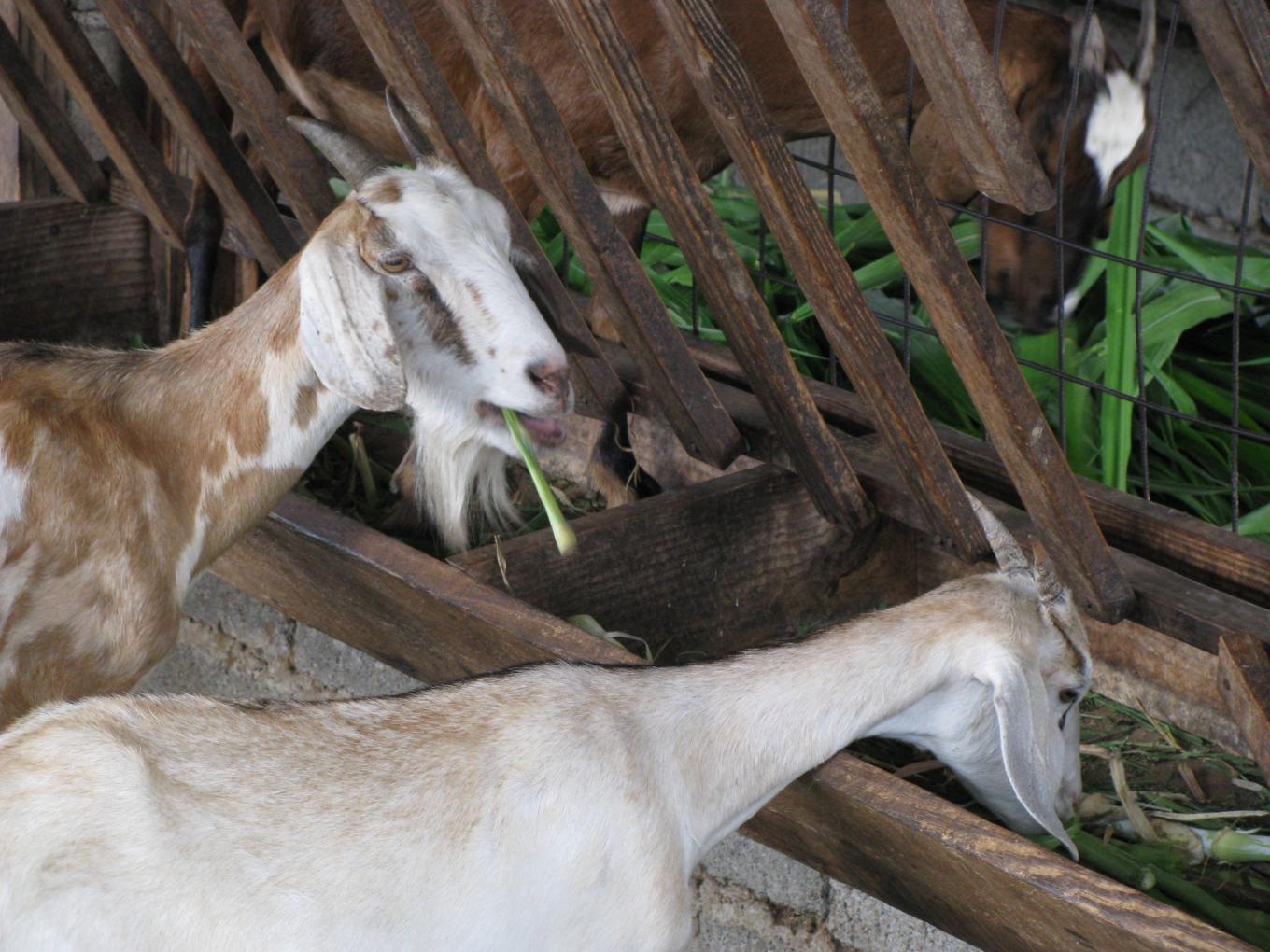As a result of the training, farmers from the region will be able to put more money in their pockets and more affordable, local food on the plates of Caribbean residents.

Dominican Republic, Santo Domingo, July 27, 2016. The Caribbean Agricultural Research and Development Institute (CARDI) and the Dominican Institute of Agricultural and Forestry Research (IDIAF) have joined together to present a comprehensive regional training workshop on Improved Breed Management and Techniques for Small Ruminants.
The workshop, that takes place in the Dominican Republic this week is designed to help small ruminant farmers and institutional technicians build practical knowledge and skills in the hopes of meeting more of the regional demand for their products.
The initiative is part of the Agriculture Policy Programme (APP) a project funded under the 10th European Development Fund (EDF) and executed by the European Union (EU) and the Inter-American Institute for Cooperation on Agriculture (IICA).
As a result of the training, that ends this friday, farmers from the region will be able to put more money in their pockets and more affordable, local food on the plates of Caribbean residents, and, on their return, institutional technicians will conduct similar training workshop for farmer and farmer groups in their country.
Participating countries include Jamaica and Trinidad and Tobago, considered the leading small ruminant producers in CARICOM, and Barbados, St. Vincent, Grenada and Guyana.
The participants will visit several local sheep and goat farms, learn techniques in artificial insemination and embryo transfer and the use of specialised software for breed selection, good agricultural practices for the preparation of hay bales and silage.
Visits to sheep and goats farms with high genetic production will provide an opportunity for learning about extraction and evaluation for goat insemination. And, visits to the IDIAF Experimental Stations will expose farmers to on-going research and validation projects that will benefit the small ruminant industry in the long-run.
The Improved Breed Management and Techniques for Small Ruminants workshop offers an excellent opportunity to advance CARICOM producers and producer groups in their drive to develop the small ruminant industry in the Region.
Why training on this topic?
Stop at any roadside market in the Caribbean and you’re likely to be able to buy fresh mutton and goat meat. Despite the fact that CARICOM producers have difficultly competing with the price of imported products, they have no trouble selling their meat at these markets. Most Caribbean residents know that fresh, local meat makes a much better meal.
However, if you stop at your neighborhood grocery store, you may have trouble finding meat from local sheep and goat (small ruminants). There is a high demand for these products in the Caribbean, and Regional producers can only meet 25% of that demand. According to a CARDI report on “The Ruminant Industry in Small CARICOM countries” (2013), the Region imports 75% of small ruminant products from countries like New Zealand and Australia.
The high cost of production for local farmers contributes to a lower supply of small ruminants and hurts their ability to get their products into grocery stores. They face substantial competition from international suppliers who can sell at a lower price. High feed costs, lack of access to information and research, lack of quality breeding stock and the lack of cooperatives in the industry, make difficult for Caribbean farmers to lower their prices in order to both survive and compete.
Yet, the growth of the small ruminant industry has the potential to make positive and significant social and economic impact in the Caribbean. According to the 2013 CARDI report, growth of the industry could contribute to “employment generation, foreign exchange earnings and foreign exchange savings through import substitution, poverty alleviation and food and nutrition security.”
By looking at new forage options and good agricultural practices for preparing fodder, high feed costs could be reduced. It also provides an opportunity to demonstrate to farmers the use of technologies for combatting the effects of climate change. Currently, feed costs make up 50% of the total cost of production for sheep and 25% for goat. If these costs can be reduced, farmers can become more competitive in their pricing compared to international import competition. Also, by providing access to new information and research, farmers will be able to improve their breeding stock which will result in higher quality animals, increased birth rates and bigger herds and flocks.
There is a clear and healthy demand for small ruminant products in the Caribbean. And, the social and economic benefits of growing the industry are obvious.
More information:











